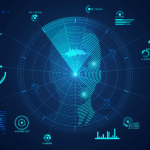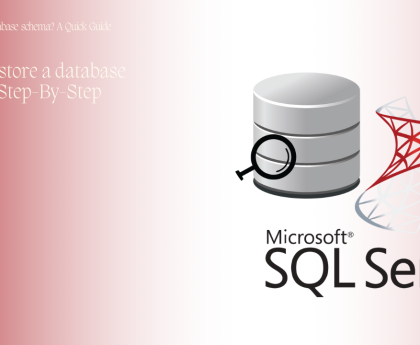-
Table of Contents
Unleash your imagination in The Metaverse: Exploring Virtual Worlds and Digital Economies.
The Metaverse refers to a virtual reality space where users can interact with a computer-generated environment and other users in real-time. It is a concept that has gained significant attention in recent years, as advancements in technology have made it increasingly possible to create immersive digital worlds. Within the Metaverse, users can explore, socialize, and engage in various activities, often blurring the lines between the physical and digital realms. Additionally, the Metaverse has the potential to facilitate digital economies, where users can buy, sell, and trade virtual goods and services using digital currencies. This introduction provides a glimpse into the exciting possibilities and implications of the Metaverse as it continues to evolve and shape our digital future.
The Evolution of Virtual Worlds: A Look into the Metaverse
The Evolution of Virtual Worlds: A Look into the Metaverse
Virtual worlds have come a long way since their inception. What started as simple text-based environments has now evolved into immersive, visually stunning landscapes that millions of people around the world can explore and interact with. This evolution has given rise to the concept of the metaverse, a term coined by science fiction writer Neal Stephenson in his 1992 novel “Snow Crash.” The metaverse represents a collective virtual shared space, created by the convergence of virtually enhanced physical reality and physically persistent virtual reality.
The metaverse is not a single virtual world, but rather a network of interconnected virtual spaces that span across different platforms and technologies. It is a place where people can not only consume content but also create and interact with others in ways that were previously unimaginable. In the metaverse, users can explore vast landscapes, engage in social activities, and even participate in virtual economies.
One of the key aspects of the metaverse is its ability to create digital economies. In virtual worlds, users can buy and sell virtual goods and services using virtual currencies. These digital economies have become increasingly sophisticated over the years, with some virtual goods selling for real-world money. For example, in the popular game “Fortnite,” players can purchase cosmetic items for their characters, such as skins and emotes, which can then be traded or sold on third-party platforms.
The concept of virtual economies is not new. In fact, it dates back to the early days of virtual worlds like Second Life, where users could buy and sell virtual land, clothing, and other items. However, the metaverse takes this concept to a whole new level. With advancements in blockchain technology, virtual economies can now be decentralized and secure, allowing for more transparency and trust between users.
The metaverse also offers new opportunities for businesses and entrepreneurs. In virtual worlds, companies can set up virtual storefronts and sell their products or services to a global audience. This opens up new markets and revenue streams that were previously inaccessible. Additionally, the metaverse allows for innovative advertising and marketing strategies, where brands can create immersive experiences and engage with consumers in ways that traditional media cannot.
However, the metaverse is not without its challenges. One of the main concerns is the issue of privacy and security. As users spend more time in virtual worlds, their personal data becomes increasingly valuable. Companies must ensure that they have robust security measures in place to protect user information and prevent unauthorized access.
Another challenge is the potential for addiction and escapism. Spending too much time in virtual worlds can have negative effects on mental health and social relationships. It is important for users to find a balance between their virtual and real lives and to use virtual worlds as a tool for enrichment rather than as a means of escape.
In conclusion, the metaverse represents the next frontier in virtual worlds. It offers a vast and interconnected network of virtual spaces where people can explore, create, and interact. With the rise of digital economies and advancements in technology, the metaverse presents new opportunities for businesses and entrepreneurs. However, it also comes with its own set of challenges that must be addressed. As the metaverse continues to evolve, it will be fascinating to see how it shapes our future and the way we interact with the digital world.
Unleashing the Potential of Digital Economies in the Metaverse
The Metaverse: Exploring Virtual Worlds and Digital Economies
Unleashing the Potential of Digital Economies in the Metaverse
As technology continues to advance at an unprecedented pace, the concept of the Metaverse has become a hot topic of discussion. The Metaverse refers to a virtual reality space where users can interact with a computer-generated environment and other users in real-time. It is a fully immersive experience that blurs the line between the physical and digital worlds. While the idea of the Metaverse may seem like something out of a science fiction novel, it is quickly becoming a reality, and with it comes the potential for new and exciting digital economies.
One of the key aspects of the Metaverse is the ability for users to create and own digital assets. These assets can range from virtual real estate to unique items and avatars. In the Metaverse, ownership of these assets is recorded on a blockchain, ensuring transparency and security. This opens up a world of possibilities for digital economies, as users can buy, sell, and trade these assets just like they would in the physical world.
The digital economy in the Metaverse is not limited to just buying and selling assets. It also includes a wide range of services and experiences that users can offer. For example, users can create and sell virtual experiences, such as concerts or art exhibitions, that others can attend from the comfort of their own homes. This not only provides new opportunities for artists and creators but also allows users to explore and enjoy a wide range of experiences without leaving their homes.
Another exciting aspect of the digital economy in the Metaverse is the potential for decentralized finance (DeFi). DeFi refers to financial services that are built on blockchain technology, removing the need for intermediaries such as banks. In the Metaverse, users can participate in DeFi protocols to earn passive income, lend and borrow assets, and even create their own financial products. This opens up a whole new world of financial opportunities for users, regardless of their location or background.
The digital economy in the Metaverse also has the potential to address some of the challenges faced by traditional economies. For example, in many parts of the world, access to financial services is limited, making it difficult for individuals to save, invest, or access credit. The Metaverse can provide a solution to this problem by offering financial services that are accessible to anyone with an internet connection. This has the potential to empower individuals and communities, allowing them to participate in the global economy on their own terms.
However, as with any new technology, there are also challenges and risks associated with the digital economy in the Metaverse. One of the main concerns is the potential for fraud and scams. As the digital economy grows, so does the risk of malicious actors taking advantage of unsuspecting users. It is crucial for users to be vigilant and take necessary precautions to protect themselves and their assets.
In conclusion, the digital economy in the Metaverse holds immense potential for innovation and growth. It offers new opportunities for creators, entrepreneurs, and individuals to participate in a global economy that is not limited by physical boundaries. However, it is important to approach this new frontier with caution and ensure that proper safeguards are in place to protect users and their assets. With the right balance of innovation and regulation, the digital economy in the Metaverse can truly unleash its full potential and revolutionize the way we live, work, and interact in the digital age.
Navigating the Metaverse: Exploring Virtual Worlds and their Impact on Society
The Metaverse: Exploring Virtual Worlds and Digital Economies
Navigating the Metaverse: Exploring Virtual Worlds and their Impact on Society
In recent years, the concept of the Metaverse has gained significant attention, capturing the imagination of both tech enthusiasts and the general public alike. The Metaverse refers to a virtual reality space where users can interact with a computer-generated environment and other users in real-time. It is a digital universe that transcends the boundaries of physical reality, offering endless possibilities for exploration, socialization, and even economic opportunities.
Virtual worlds within the Metaverse have become increasingly sophisticated, offering immersive experiences that mimic real-life interactions. Users can create avatars, digital representations of themselves, and navigate through these virtual environments, interacting with other users and engaging in various activities. From attending virtual concerts to exploring fantastical landscapes, the Metaverse offers a new dimension of entertainment and socialization.
However, the impact of the Metaverse extends far beyond mere entertainment. Virtual worlds have the potential to revolutionize the way we work, learn, and even conduct business. With the rise of remote work and online education, the Metaverse provides a unique platform for collaboration and learning. Imagine attending a virtual conference where participants from around the world can interact and exchange ideas in real-time, without the limitations of physical distance. The Metaverse has the potential to break down barriers and foster global connections like never before.
Moreover, the Metaverse has given rise to the concept of digital economies. Within virtual worlds, users can buy and sell virtual goods and services using digital currencies. This has created a new frontier for entrepreneurship and economic opportunities. From virtual real estate to digital artwork, the Metaverse has become a marketplace for creators and innovators to monetize their skills and creations. In fact, some individuals have even made a living solely through their activities within virtual worlds.
However, the emergence of digital economies within the Metaverse also raises important questions about regulation and governance. As virtual worlds become more intertwined with our daily lives, issues such as intellectual property rights, taxation, and fraud prevention become increasingly relevant. Policymakers and legal experts are grappling with the challenges of creating a regulatory framework that balances innovation and consumer protection within the Metaverse.
Furthermore, the Metaverse has the potential to reshape social dynamics and identity. In virtual worlds, individuals have the freedom to create and present themselves in any way they choose. This has led to discussions about the impact of virtual identities on self-expression and personal relationships. Additionally, virtual worlds offer a safe space for individuals to explore different aspects of their identity, free from the constraints and prejudices of the physical world.
In conclusion, the Metaverse represents a new frontier in human interaction and economic activity. Virtual worlds within the Metaverse offer immersive experiences that go beyond mere entertainment, providing opportunities for collaboration, learning, and entrepreneurship. However, as the Metaverse continues to evolve, it is crucial to address the regulatory and societal implications that arise from its widespread adoption. The Metaverse has the potential to reshape our world in profound ways, and it is up to us to navigate this digital landscape responsibly and ethically.In conclusion, the concept of the metaverse offers a fascinating exploration of virtual worlds and digital economies. It presents a vision of a fully immersive and interconnected digital realm where individuals can engage in various activities, socialize, and conduct business. The metaverse has the potential to revolutionize industries such as gaming, entertainment, education, and commerce. However, its realization requires overcoming significant technological, ethical, and regulatory challenges. As the development of the metaverse continues, it will be crucial to ensure inclusivity, privacy, and security to create a truly beneficial and sustainable digital environment for all users.





